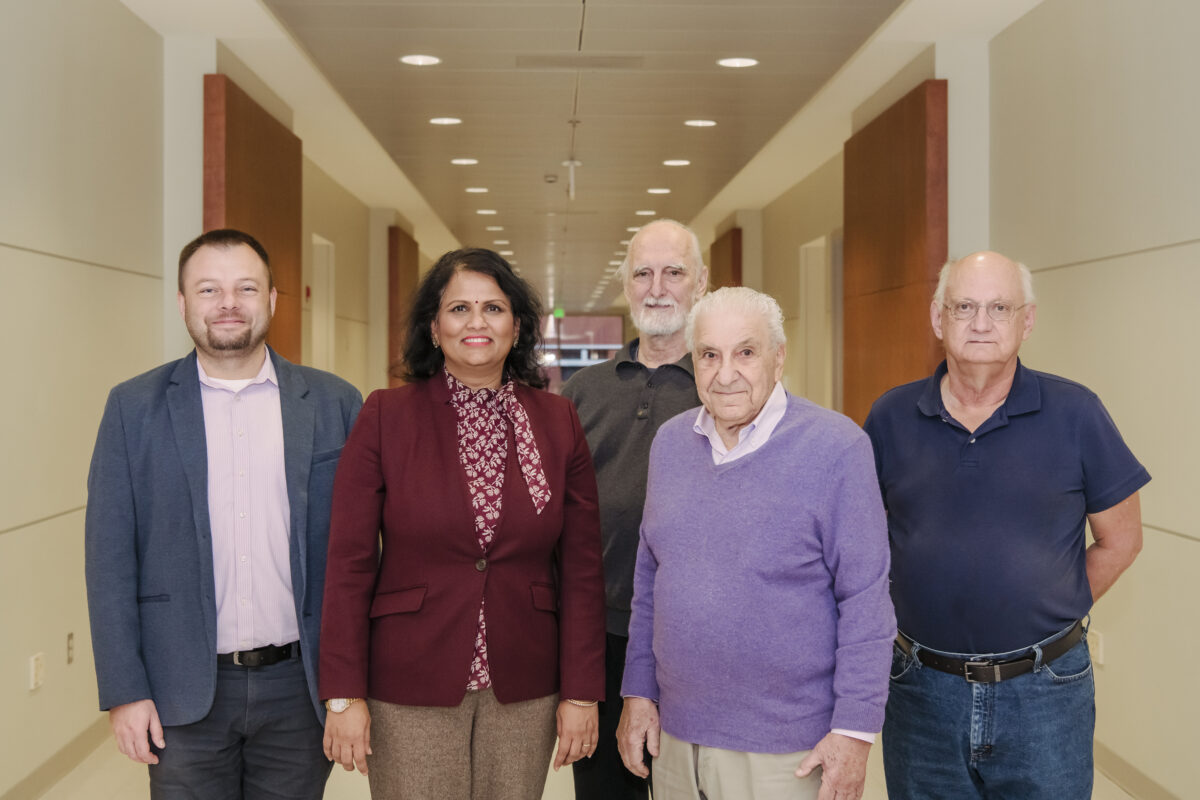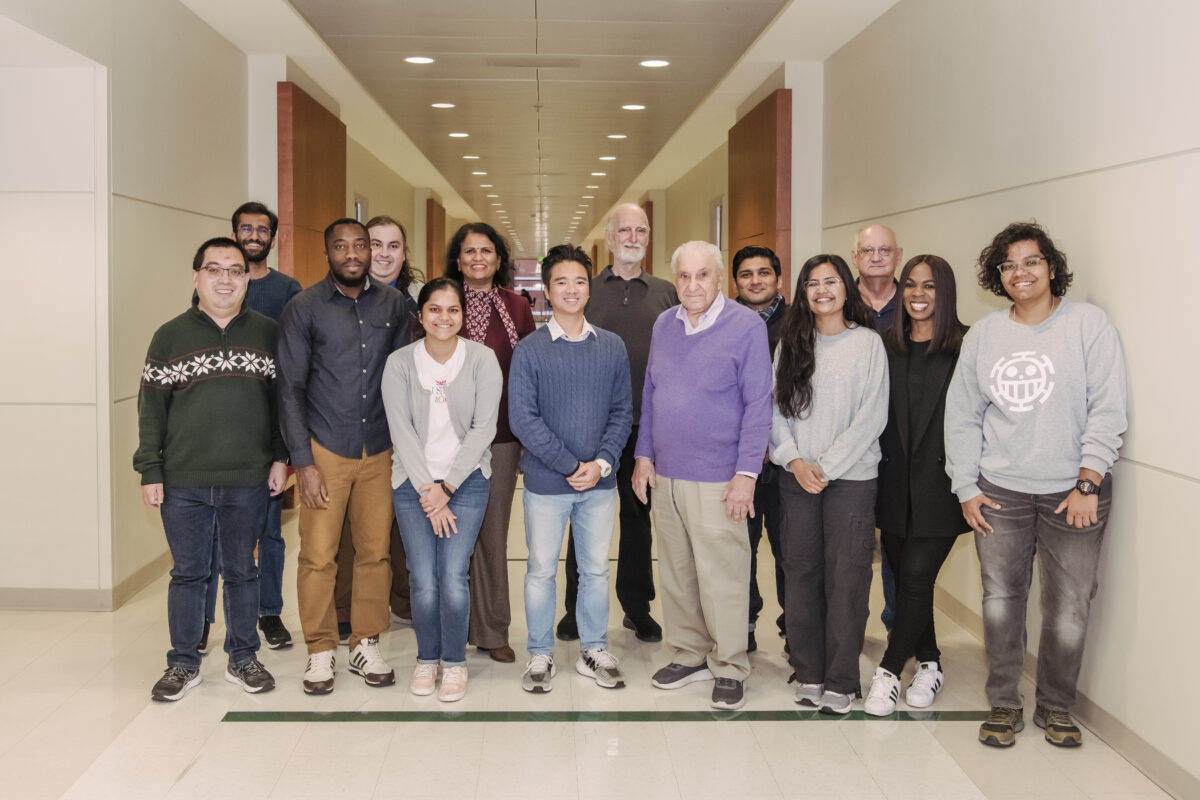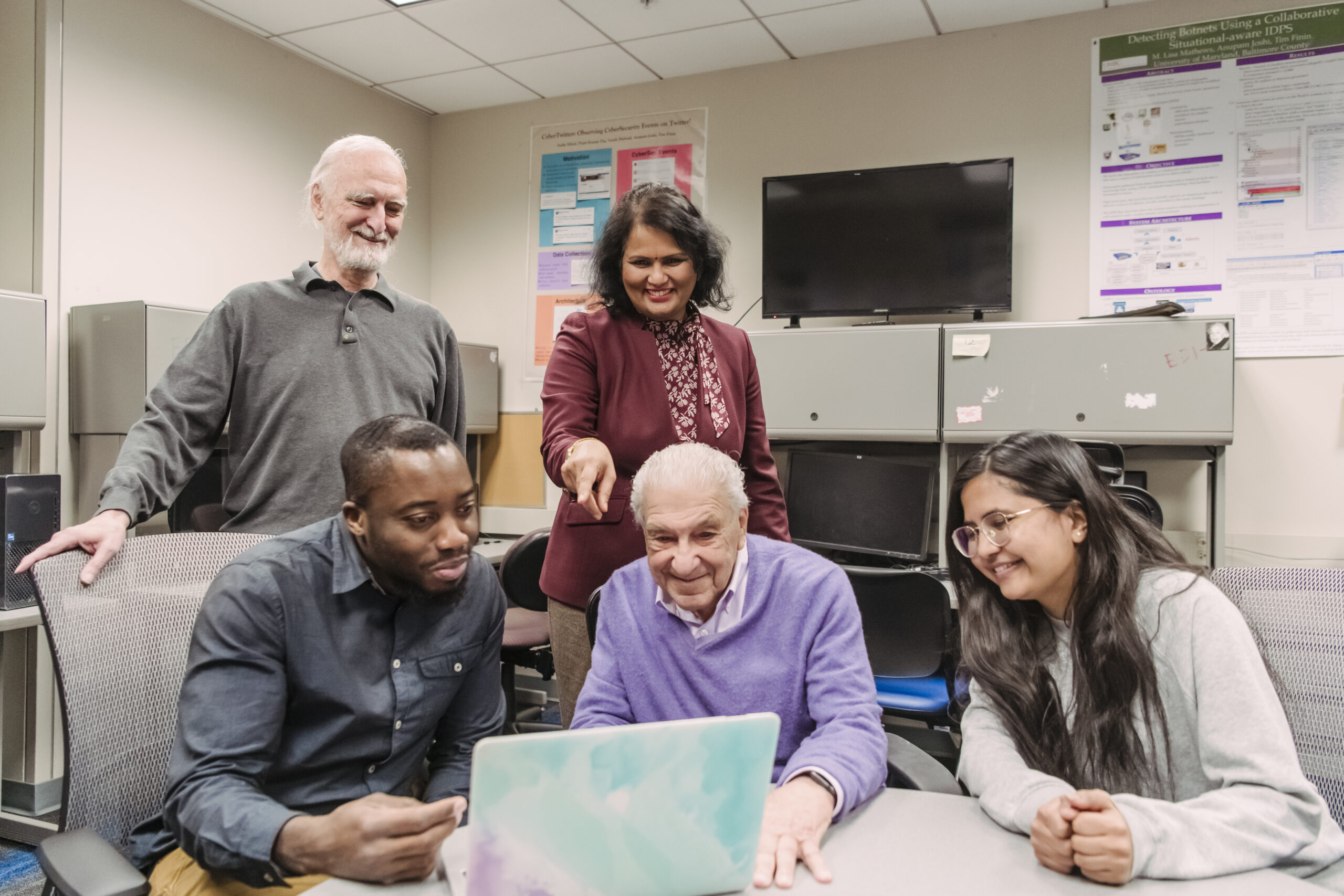UMBC’s Center for Accelerated Real Time Analytics (CARTA) team will advance its work in investigating data analytics using next-generation computing hardware with the launch of the next phase of the multi-institutional research collaboration.
UMBC is partnering with Rutgers University, the University of Miami, and Arizona State University to deploy CARTA Phase II, a five-year initiative that explores data analytics research to develop new accelerated and real-time approaches to address advanced technology integration in industries such as health care, finance, and security.
CARTA initially launched in 2018 with funding provided by the National Science Foundation’s Industry-University Cooperative Research Centers (IUCRC) program to develop next-generation computing hardware to address data-intensive infrastructure challenges. The IUCRC grant has been extended to fund new and existing CARTA sites with an additional $100,000 per year (for the next five years) to build on the centers’ work in data analytics research.

“CARTA’s focus has been on real-time analytics of large datasets on next generation technologies, or accelerated technologies, like high-performance computing, cloud computing, and quantum computing. This work will continue in Phase II,” says Karuna Joshi, associate professor of information systems and director of UMBC’s CARTA site.
Advancing industry collaborations
Since its launch, UMBC-CARTA faculty and student researchers have conducted more than 40 projects examining data analytics in Blockchain technology, malware analysis, medical data sharing, and evaluating bias in artificial intelligence in medical imaging. UMBC-CARTA collaborator Milton Halem, research professor of computer science and electrical engineering, will continue his work in weather and wildfire prediction research in the next phase of the initiative.
CARTA Phase II projects will largely focus on medical analytics (medical images and dataset sharing) and scientific and environmental datasets that can inform weather and wildfire predictions, Joshi explains, adding that “security is going to be the overlying paradigm across all of those various areas of research.”

The CARTA sites are also aiming to expand their number of industry partner collaborations. In CARTA Phase I, UMBC worked with a range of industry partners that included NASA, IBM, the National Security Agency, Laboratory for Physical Sciences, the Department of Homeland Security, Morgan Stanley, RAD-AID, and Carestream.
“In Phase II, we are focusing more on collaborative projects with our university partners and building on those collaborations and making them stronger,” says Joshi. “We’re also looking at new avenues that our industry partners might be interested in such as smart cities, next-generation airports, and how to build secure image analytics and algorithms.”
As Phase II evolves, UMBC-CARTA research will also focus on large language models that are rising in popularity, such as ChatGPT, and digital twinning technologies, which is the process of creating a virtual model of a physical object.
Student collaboration at every level
Undergraduate, graduate, and post-doctoral students will continue to work on research projects at UMBC-CARTA. Since its inception, UMBC-CARTA has supported more than 15 graduate students and has provided opportunities for undergraduate students to strengthen their research skills through the NSF-funded Research Experiences for Undergraduates program.

Kelvin Echenim, a second-year information systems Ph.D. student at UMBC, has worked on the CARTA team developing a scoring system to assess the comprehensiveness and user-friendliness of internet of things privacy policies.
“The scoring system aims to improve user comprehension and involvement in privacy matters by finding a balance between strict legal compliance and end-user practical accessibility,” says Echenim.
He adds that current and future research in CARTA Phase II will help expand his knowledge in solving complex problems in data-driven AI systems.
Read more about UMBC’s Center for Accelerated Real Time Analytics

